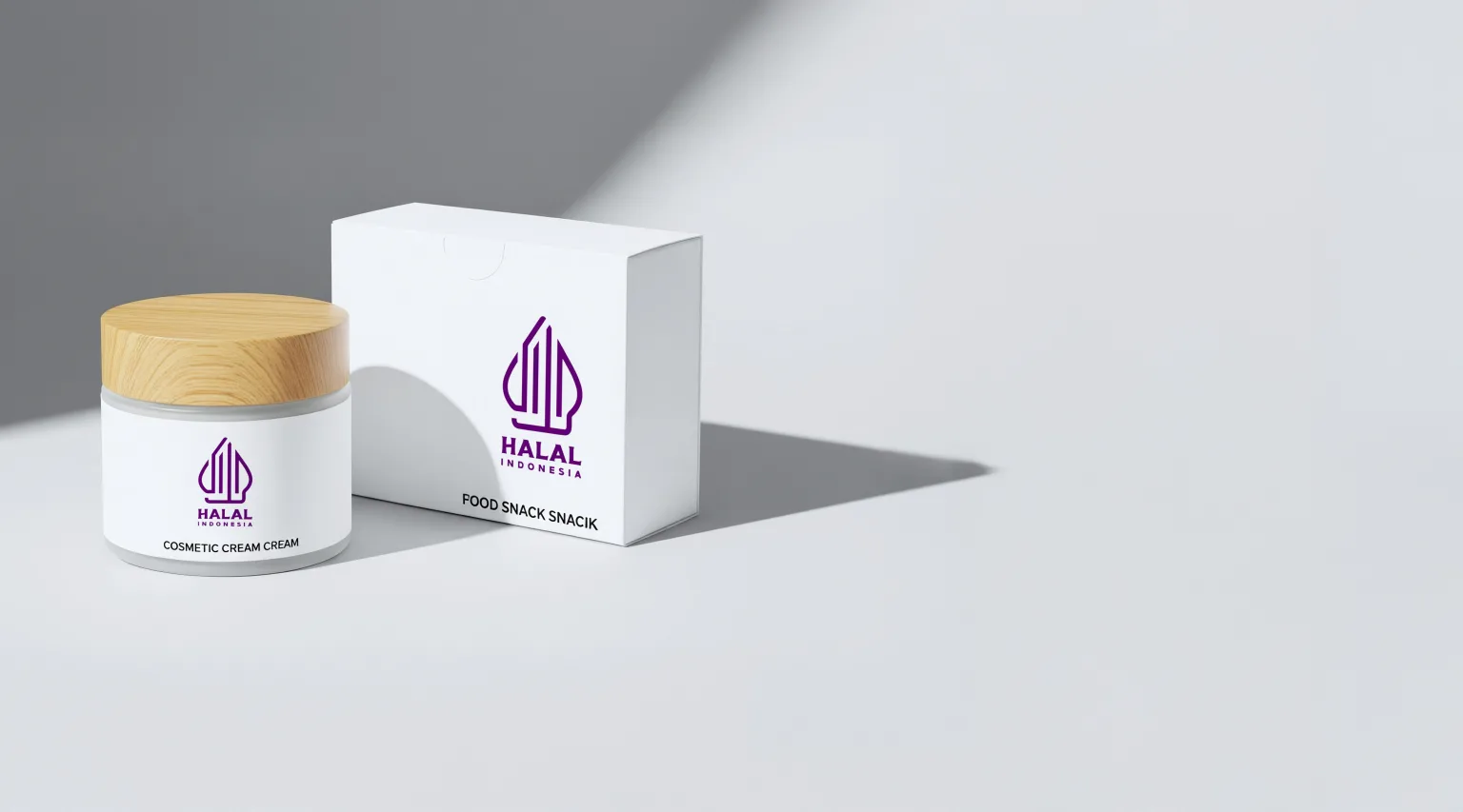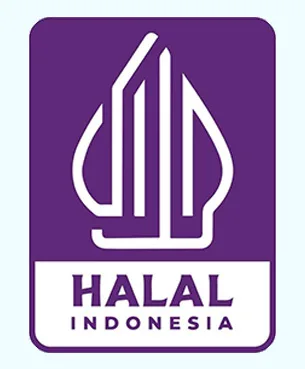Halal Certification Indonesia
Ensure your products are officially Halal-certified in Indonesia and gain trust from millions of Muslim consumers.

Consumer Trust
Display the Halal logo proudly to build stronger trust, especially among Muslim buyers who prioritize ethical and religious standards.

What is Halal Certification?
Halal certification in Indonesia is an official validation process managed by BPJPH (Badan Penyelenggara Jaminan Produk Halal) in cooperation with Halal Inspection Body (LPH) to ensure that products comply with Islamic law. This includes reviewing ingredients, processes, facilities, and documentation.
Benefits of Certification:
Recognition by Indonesian authorities
Halal logo eligibility for labeling
Supports consumer trust and regulatory compliance
Growing requirement for various product sectors
Product Categories We Serve
We help both Indonesian and international companies certify a wide range of products:
Food & Beverage – Snacks, packaged goods, ready-to-eat meals
Cosmetics & Skincare – Creams, lotions, soaps, hygiene items
Consumer Goods / Used Items: Medical devices, household hygiene products (PKRT), product packaging, office supplies (ATK), and worship equipment for Muslims.
Food & Beverage Products
Cosmetics
Consumer Goods
FLOWCHART
Halal Certification Process
Halal Certification Requirements in Indonesia
Business Identification Number based on Risk Analysis (NIB RBA)
Ingredient list and sourcing documentation
Product labels and packaging mockups
SOPs and hygiene protocols
Traceability records and Halal compliance declarations
Halal Supervisor
Flow Chart
Audit readiness (e.g. facility layout, employee roles)
Frequently Ask Question
Answer:
Products that must be Halal-certified span several categories to ensure compliance with Islamic laws and ethical standards. The main types include:
Food and Beverages: This includes meat and poultry slaughtered according to Halal guidelines, dairy products free from non-Halal additives, snacks and confectionery without non-Halal ingredients (like gelatin from non-Halal sources or alcohol), and beverages free from alcohol or other forbidden substances.
Pharmaceuticals and Supplements: Medicines and dietary supplements must not contain non-Halal ingredients such as gelatin derived from non-Halal animals. The entire production process must also comply with Halal standards to avoid cross-contamination.
Cosmetics and Personal Care Products: These products must be free from non-Halal ingredients, and their manufacture must avoid contamination with non-Halal materials.
Fashion and Textiles: This growing category includes clothing, textiles, leather, and footwear products, especially those that contain animal elements. The materials must come from animals that are permissible (e.g., cows, goats, sheep) and slaughtered according to Islamic law, with specific exclusions such as skins from pigs or dogs.
Chemical and Biological Products: Some countries require Halal certification for chemical and biological products, especially when these products contain animal derivatives or are used in processes that affect Halal compliance.
Other Goods and Services: This may include packaging materials, storage, distribution, animal slaughter services, and places where food and related products are processed, sold, or served, to ensure the entire supply chain complies with Halal standards.
It is important to note that not all natural products require Halal certification, such as fresh fruits, vegetables, cereals, nuts, fresh milk and eggs, fresh fish, and raw natural materials that have not undergone processing or contamination with non-Halal substances.
Answer:
Yes. The Minister of Religious Affairs will set a deadline (no later than October 17 2026) for imported food products, beverages, slaughtered items, and related services, pending mutual-recognition agreements.
Answer:
Fees vary by product type, number of SKU’s, and inspection scope. BPJPH determine official charges after reviewing your application—so exact costs are provided once you submit your documents
Answer:
A Halal certificate in Indonesia was traditionally valid for 4 years, with a required renewal application at least 3 months before expiration. However, according to the latest regulations under Government Regulation (GR) 42/2024, Halal certificates are now issued with permanent validity as long as there are no changes to the product’s material composition or the Halal production process. There is no need for renewal unless there is a change in ingredients or the production process, in which case the certificate must be updated by reapplying with supporting documents.
In summary:
Before GR 42/2024: Validity was 4 years, renewal required 3 months before expiry.
Under GR 42/2024: Certificate validity is indefinite/permanent unless product composition or processing changes.
Answer:
Yes, but only if there’s an official Mutual Recognition Arrangement (MRA) between BPJPH and the foreign Halal authority. MRAs must be finalized by October 17, 2026, to allow continued recognition of imported products.
Have any questions about Halal Certification?
We’re here to help! Our team of experts provides clear guidance and support to ensure a seamless registration process, from understanding regulations to obtaining approval.







